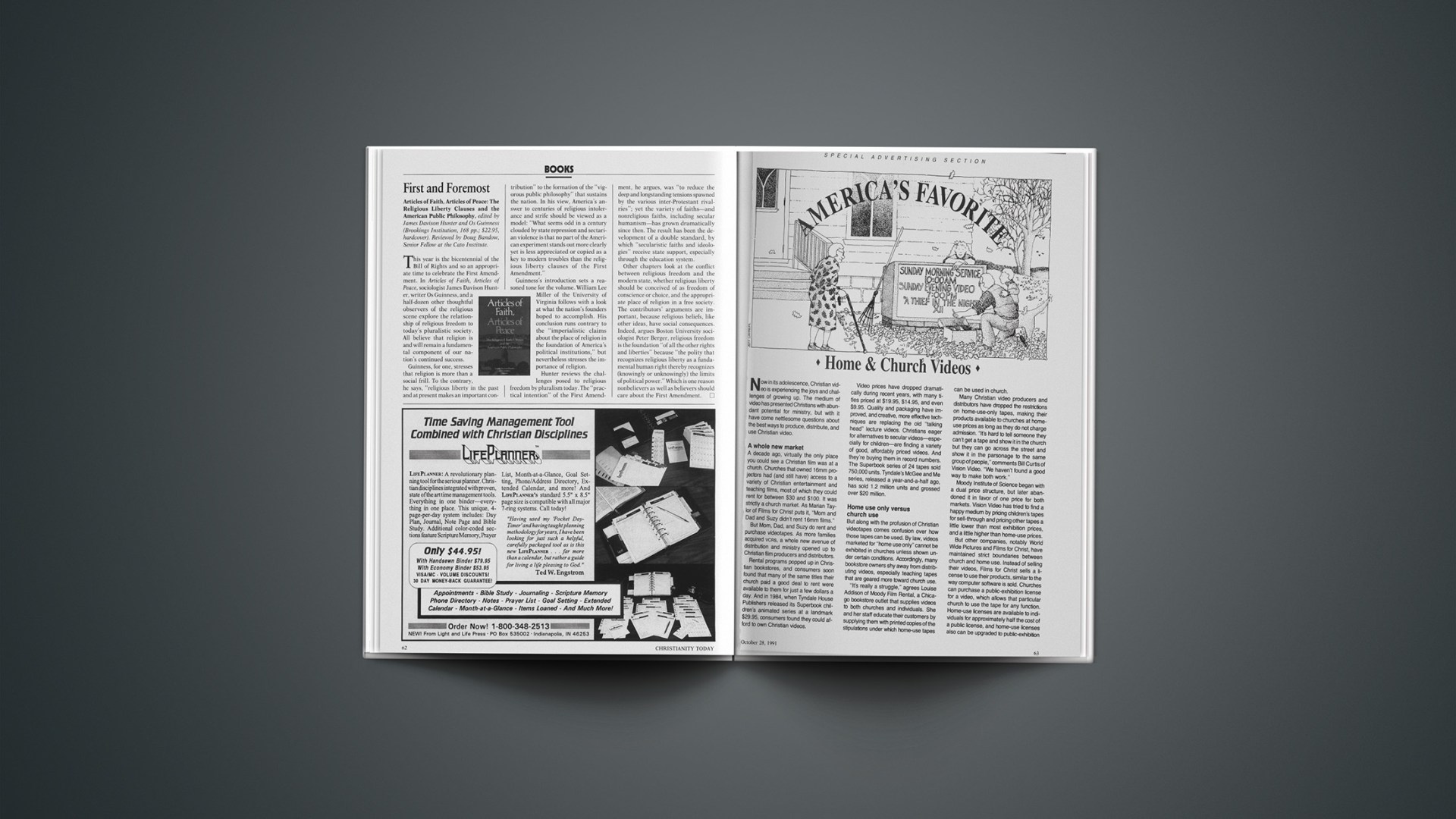Articles of Faith, Articles of Peace: The Religious Liberty Clauses and the American Public Philosophy, edited by James Davison Hunter and Os Guinness (Brookings Institution, 168 pp.; $22.95, hardcover). Reviewed by Doug Bandow, Senior Fellow at the Cato Institute.
This year is the bicentennial of the Bill of Rights and so an appropriate time to celebrate the First Amendment. In Articles of Faith, Articles of Peace, sociologist James Davison Hunter, writer Os Guinness, and a half-dozen other thoughtful observers of the religious scene explore the relationship of religious freedom to today’s pluralistic society. All believe that religion is and will remain a fundamental component of our nation’s continued success.
Guinness, for one, stresses that religion is more than a social frill. To the contrary, he says, “religious liberty in the past and at present makes an important contribution” to the formation of the “vigorous public philosophy” that sustains the nation. In his view, America’s answer to centuries of religious intolerance and strife should be viewed as a model: “What seems odd in a century clouded by state repression and sectarian violence is that no part of the American experiment stands out more clearly yet is less appreciated or copied as a key to modern troubles than the religious liberty clauses of the First Amendment.”
Guinness’s introduction sets a reasoned tone for the volume. William Lee Miller of the University of Virginia follows with a look at what the nation’s founders hoped to accomplish. His conclusion runs contrary to the “imperialistic claims about the place of religion in the foundation of America’s political institutions,” but nevertheless stresses the importance of religion.
Hunter reviews the challenges posed to religious freedom by pluralism today. The “practical intention” of the First Amendment, he argues, was “to reduce the deep and longstanding tensions spawned by the various inter-Protestant rivalries”; yet the variety of faiths—and nonreligious faiths, including secular humanism—has grown dramatically since then. The result has been the development of a double standard, by which “secularistic faiths and ideologies” receive state support, especially through the education system.
Other chapters look at the conflict between religious freedom and the modern state, whether religious liberty should be conceived of as freedom of conscience or choice, and the appropriate place of religion in a free society. The contributors’ arguments are important, because religious beliefs, like other ideas, have social consequences. Indeed, argues Boston University sociologist Peter Berger, religious freedom is the foundation “of all the other rights and liberties” because “the polity that recognizes religious liberty as a fundamental human right thereby recognizes (knowingly or unknowingly) the limits of political power.” Which is one reason nonbelievers as well as believers should care about the First Amendment.










